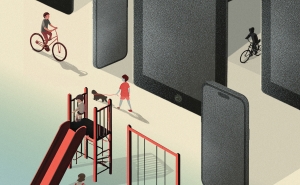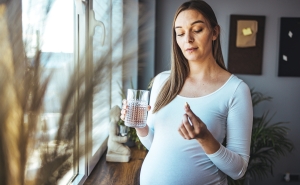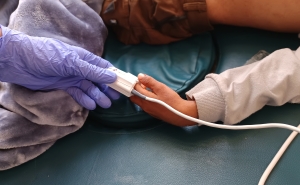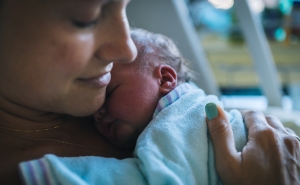10 Reasons Your Child Should Get Vaccinated for COVID-19 as Soon as Possible
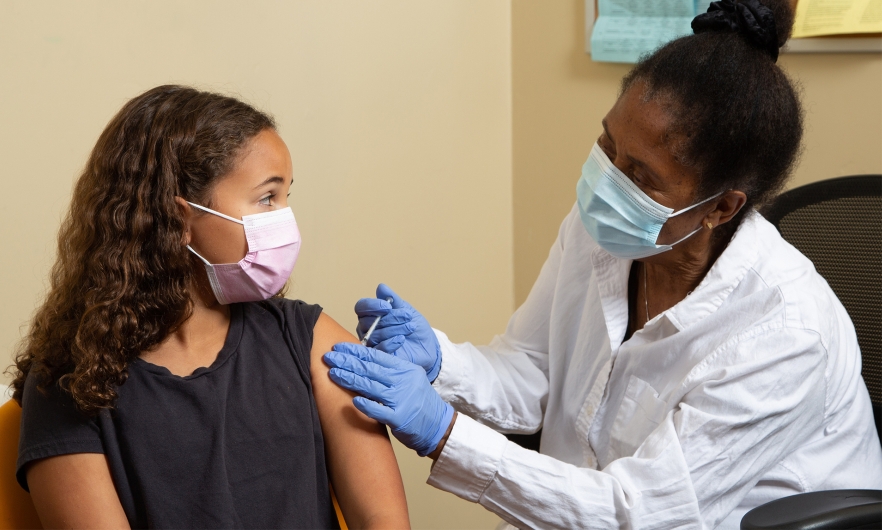
Interview with Gigi Gronvall, PhD
Last week, the FDA granted Emergency Use Authorization for COVID-19 shots for children ages 5–11.
The consideration comes at a critical time as we head into the fall and winter when we typically deal with more viruses including colds, flu, and RSV. More than 190 million people ages 12 and up in the U.S. have been fully vaccinated, and an estimated 28 million children are now eligible.
Vaccinating children has benefits beyond giving the virus fewer people to infect. Here, parent and immunologist Gigi Gronvall, PhD, explains why parents shouldn’t downplay COVID’s seriousness in children—and why it’s important for kids to be vaccinated.
It’s likely your child will be exposed to COVID-19 at some point if they haven’t been already. COVID-19 vaccines help prevent kids from getting severely sick and from long-term complications or even death.
Right now, because there is still so much COVID-19 transmission in the U.S., it’s the seventh leading cause of death for children ages 5–11 and even higher than that for kids ages 12–18. COVID-19 infections in children are not nothing; it’s far more dangerous than the flu.
Complications from COVID-19 for kids are very rare, but we still don’t know what leads to those complications—a third of children hospitalized had no known risk factors. Complications from COVID can include multi-inflammatory syndrome, myocarditis, long COVID, or a loss of taste and smell, which can also have mental health implications.
We’re also learning new things all the time about COVID, and that will continue. Measles, for example, can cause major fatal complications to people 20 years after they’ve had it. Time will tell whether having COVID may have similar long-term implications for children, so for me I want to minimize the risk of infections as much as possible for my children.
Getting kids vaccinated helps protect everyone.
Although there is some evidence that vaccinated people can infect others, this is still rare. People are much more likely to be infected by unvaccinated individuals.
Kids may be exposed to COVID in schools and then accidentally expose their teachers, grandparents, or other high-risk individuals in their lives. The reason so many people are having to get booster shots now is because there are high levels of transmission of COVID still happening in the U.S.
The bottom line is that kids are part of the COVID “chain of transmission.” The more people who are vaccinated, the less transmission will be happening in any community, the less people will get sick, and there are less opportunities for the virus to mutate.
Vaccinated kids who are exposed to COVID won’t have to do a traditional quarantine.
The CDC recommends that vaccinated people who are exposed to COVID from a close contact wear a mask in public indoor spaces and seek testing if symptoms arise.
Unvaccinated people, on the other hand, must quarantine for 10–14 days after exposure in most cases, which is very disruptive for kids and their households.
Some schools may require vaccinations to attend or to participate in certain activities.
It’s likely that many schools will require vaccinations at some point. Already, some high schools require vaccinations to play sports or attend dances and other events.
No guardian wants their child to be accidentally exposed to COVID and potentially benched for an important game or miss important milestones like dances and extracurricular activities.
COVID vaccines are safe.
No vaccine in existence has had any side effects more than two months from the point of vaccination. We are way beyond that now for the majority of people who have been fully vaccinated.
Some parents have cited worries about their child getting myocarditis from the COVID vaccines, but the chances of that happening are much higher if the child gets sick with COVID. Myocarditis remains a very rare side effect and one that can be treated with rest or medication.
Side effects will likely be milder for kids than for adults.
Children are being given a smaller dose of the vaccine, to minimize side effects while still providing protection. The most commonly reported one from clinical trials was pain at the injection site.
You might want to keep sports schedules in mind in case of pain in the arm, but otherwise I wouldn’t plan on having to keep kids home from school because of side effects.
Sooner is better—even for children who might soon be eligible for an adult dose.
Parents of 11-year-olds are wondering if they should wait until their child’s 12th birthday to get the adult dose of the COVID vaccines. I am in exactly that situation because my 11-year-old turns 12 in November.
I see no reason to wait—I looked at the [efficacy] data, and it’s comparable between the two groups.
It’s also unlikely that they would mix the doses: If your child gets the under-12 dose for the first shot, then turns 12 before the second shot, they would still get the under-12 dose for the second shot. It’s important for people to remember that this is not based on the child’s weight.
You don’t have to plan around the holidays.
Depending on when your child is able to get their first shot, the second shot may land during Thanksgiving or winter break. In general, it’s best to adhere to the vaccination schedule, but waiting a few days longer isn’t going to be a big problem.
COVID shots often hurt less than the flu shot.
My older son, who hates needles and the flu shot in particular, was surprised that he didn’t even feel the COVID shot. It’s not as big of a needle and not as much liquid [being injected].
Kids under 12 will also get a smaller dose of the vaccine which is even less liquid.
Kids under 5 will have to wait a bit, but there are trials underway.
I haven’t heard a clear time table yet, but the trials for kids under 5 are ongoing. We may see emergency use authorization in early 2022 or in the Spring.
Gigi Gronvall, PhD, is a senior scholar at the Center for Health Security and an associate professor in Environmental Health and Engineering at the Johns Hopkins Bloomberg School of Public Health.

